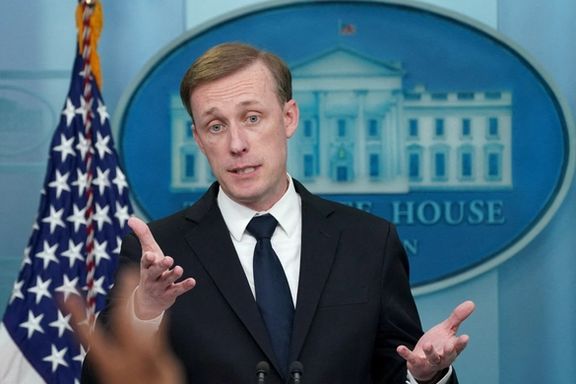US Sends Mixed Signals After Houthi Attacks In Red Sea

The US government’s reaction to attacks on vessels in the Red Sea on Sunday has been a mixture of blaming Iran and downplaying the threat to the US Navy.

The US government’s reaction to attacks on vessels in the Red Sea on Sunday has been a mixture of blaming Iran and downplaying the threat to the US Navy.
The episode began when three commercial vessels came under attack from Iran-backed Houthis on Sunday. USS Carney responded to the vessels’ distress calls and shot down three drones. It too got targeted, according to some Pentagon reports. But later the Pentagon claimed they were not sure if US warships are being targeted by the Houthis.
However, in a presser Monday afternoon, national security advisor Jake Sullivan pointed the finger at Iran.
“We have every reason to believe these attacks, while they were launched by the Houthis in Yemen, are fully enabled by Iran,” he said, reiterating an earlier statement from Centcom.
Sullivan added that talks are being held with US allies to set up “a maritime task force of sorts” to ensure safe passage for ships in the Red Sea.
The Biden administration has been trying hard to avoid direct confrontation with Iran –and a potential escalation of war in the region. But continued targeting of American troops and interests is making this strategy untenable.
Lara Seligman of Politico tweeted that “An hours-long firefight involving U.S. commercial vessels in the Red Sea this weekend has left some U.S. officials frustrated by what they see as the Biden administration’s deliberate downplaying of a major threat to American forces.”
Middle East expert Charles Lister also tweeted, “Two DOD sources told me today that the Biden White House has placed (in the words of one) ‘every possible handcuff’ on DOD’s ability to respond to Iran proxy attacks.”
We do need to be more aggressive and push back against Iran,” said Senator Joni Ernst Monday. “This would continue to escalate if we have such a milk-toast response from this administration.”
Biden critics say his approach has emboldened Iran and its proxies. On the Capitol, some call his strategy “appeasement” and are pushing for tougher actions.
“What is it going to take for the Biden administration to take action to stop Iran,” asked Congressman Mike Waltz in an interview with Fox News Monday. “Our sailors under direct fire from Iranian-made missiles & drones deserve better.”
In the past few weeks, the Houthis have attacked several vessels in the Red Sea and launched drones and missiles towards Israel. But they had avoided targeting the Americans – until last weekend.
The more recent wave of Houthi attacks can thus be read as a clear escalation, which could make it harder for Biden and his team to shrug off the role of the regime in Tehran as well as the link to the war on Gaza.
Despite clear messaging from the Houthis in Yemen, both the US and Israel seem to prefer to portray the Red Sea debacle as a separate issue unrelated to Israel's attacks in Gaza. Yet neither have ruled out the possibility of a military response to Houthi attacks.
“If we make the assessment or feel the need to respond, we will always make that decision at a time or place of our choosing,” a Pentagon official was quoted as saying by Politico.
The US has struck back at Iran proxies in Iraq and Syria several times in recent weeks. On Sunday, a US drone killed five militants in Iraq, whom, according to the Pentagon, were preparing to “launch a one-way attack drone.”
Monday afternoon, Centcom published another statement detailing yet another rocket attack on a US base in Syria on the weekend. “There were no injuries to personnel or damage to equipment,” the statement said, confirming that 15 rockets had been fired from “a fuel truck modified to launch up to 20 rockets” in Iraq.
Addressing the ongoing attacks by Iran proxies on American troops across the Middle East, Senator Pete Ricketts blamed the Biden administration and reiterated what seems to be a growing consensus in Washington. “The only thing they understand is strength,” he said. “And when we project weakness like we are, we’re only encouraging them to continue to attack us.”